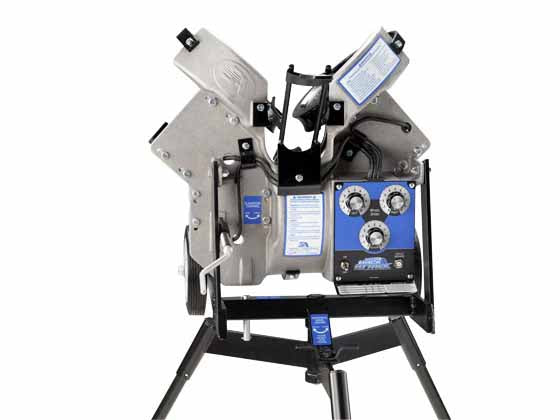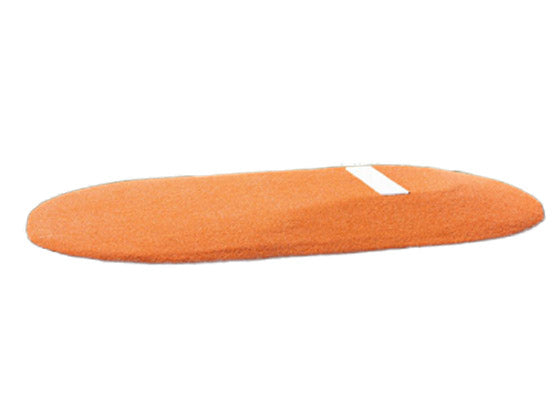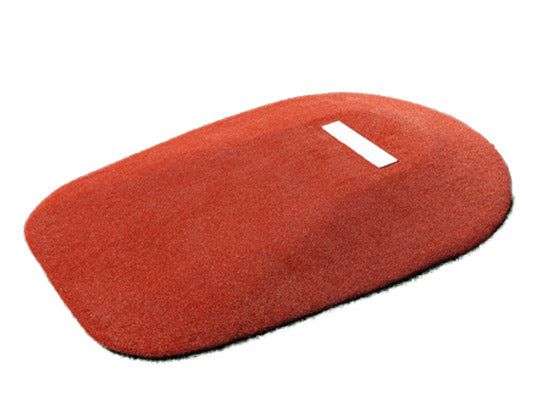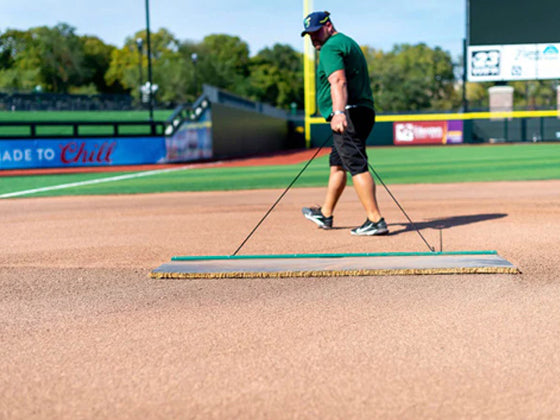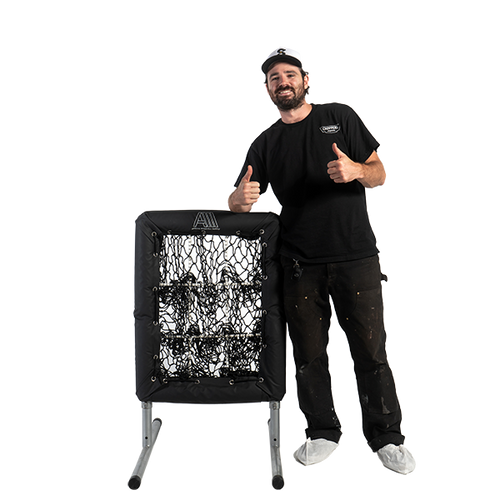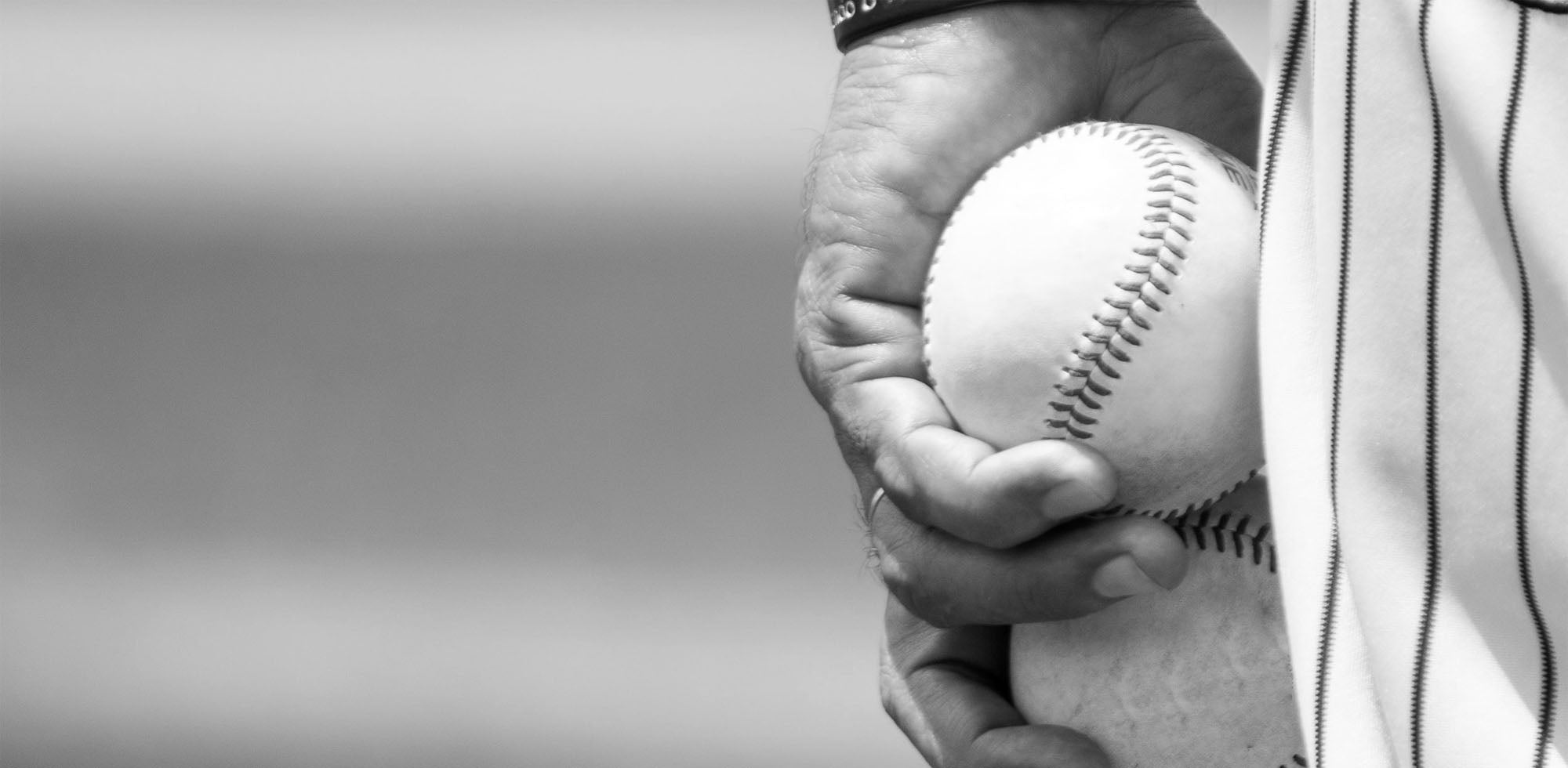Top 6 Best Youth Pitching Machines for Little League
Contents
Click to Jump to Section
The quality of a little league pitching machine really does have the potential to shape your kids success on the diamond. Whether you are a little league player, a parent of a little leaguer or a little league coach, it is important that you carefully consider the specific merits and drawbacks of several different youth pitching machines before committing to one.
Do your homework and you will be able to buy a youth pitching machine in full confidence. Let’s take a look at the cream of the crop of little league pitching machines, one of which is sure to prove suitable for your little league team, softball team or school team.
| Image | Pitching Machine | Style | Ages | Popularity | Price |
|---|---|---|---|---|---|
 |
First Pitch Baseline | One Wheel | Little League - High School |
|
|
 |
Louisville Slugger Blue Flame | Arm-Type | Little League - High School |
|
|
 |
Jugs Lite Flite | One Wheel | Little League |
|
|
 |
Heater Sports BaseHit | One Wheel | Little League |
|
|
 |
Heater Deuce 75 | Two Wheel | Little League - High School |
|
|
 |
Heater Real Baseball Pitching Machine | One Wheel | Little League |
|
|
1. First Pitch Baseline Kids Pitching Machine
Learn more about the First Pitch Baseline pitching machine for kids
If you are on the prowl for a little league pitching machine that pitches baseballs as well as softballs, look no further than the First Pitch Baseline. From solo batting practice to hitting in a backyard batting cage and batting practice for an entire little league team, the First Pitch Baseline serves all purposes you could possibly have in mind.
Youth Pitching Machine Features:
- Reversible legs for softball
- Throws pitches up to 70 miles per hour
- Adjustability to deliver both pop flies and ground balls for infield/outfield drills in addition to batting practice
- Easy assembly without the use of tools
- Five-year manufacturer’s warranty
- Plugs into both generators and 110 AC wall outlets
- Weighs only 50lbs. for portability
The fact that this pitching machine delivers baseballs upwards of 70 miles per hour means it has functionality beyond little league baseball, middle school, high school and even some minor league baseball players will benefit from taking cuts at baseballs delivered by this pitching machine. If you get tired of hitting pitches, simply tilt the machine upward so it can deliver pop flies or tilt it downward for some grounders. The pitching machine’s light weight makes it easy to move to and from your vehicle and other areas. Add in the fact that this pitching machine fits through doorways and can be transported in nearly any car and there is even more reason to favor it.
2. Louisville Slugger Blue Flame Little League Pitching Machine
Learn more about the Blue Flame mechanical pitching machine
The Blue Flame serves as both a baseball and a softball pitching machine. In fact, the vast majority of youth baseball and softball leagues have approved the Blue Flame for use. This machine delivers pitches in a consistent and reliable manner, providing batters with the opportunity to zero in on the ball exactly as they would when at the plate in an actual game situation.
Louisville Slugger Pitching Machine Features:
- Delivers both baseballs and softballs over the plate at a speed between 18 miles per hour and 45 miles per hour
- Pitch speeds can increase to 60 miles per hour with the use of a lightweight ball
- There is no need to use electricity or a battery to operate the Blue Flame
- Authorized for game use in Little League, Cal Ripken League and Babe Ruth League
The icing on the cake is the machine’s delivery of ground balls and pop flies in addition to pitches. This is exactly what little league coaches need to make practicing grounders and fly balls that much easier. There is no need to hit one ball after another for fielding practice when the Blue Flame pitching machine does all the work on your behalf.
3. Jugs Lite Flite Youth Pitching Machine
Learn more about the Jugs Lite Flite Kids Pitching Machine
If price is a primary concern, you should give serious consideration to the Jugs Lite Flite. This machine delivers fast pitches without busting your budget. While some other pitching machines are limited to fastballs, the Jugs Lite Flite delivers breaking pitches with fantastic accuracy, ensuring the batter does not get hit.
The Jugs Lite Flite features include:
- Quick Change build with unique Switch and Play knobs
- Transitions from baseballs to softballs in mere seconds
- Pitches Lite Flite baseballs, softballs and even Jugs Bulldog poly baseballs/softballs
- Delivers left-handed and right-handed curveballs, sliders and fastballs for baseball and softball players
The Jugs Lite Flite has been on the market going all the way back to 2003, meaning it has stood the test of time, delivering one accurate pitch after another for both baseball and softball players. In fact, the machine can also be used for pickleball.
4. Heater Sports BaseHit Pitching Machine for Kids
Learn more about the Heater Basehit Youth Pitching Machine
Parents and little league coaches on the hunt for the perfect pitching machine for their little ball players will find the Heater Sports BaseHit is absolutely perfect. Use this machine for batting practice and you will find it really is that much more accurate and efficient than a little league coach pitching potentially inaccurate pitches from the pitching mound.
BaseHit Pitching Machine Features include:
- Pitches up to 45 miles per hour
- Height adjustment feature to accommodate players of varying heights
- Compact, light in weight and portable
- Plug and play setup
- 6” wheel cushions for baseballs, delivering consistent strikes down the middle
- Automatic ball feeder pitches balls in 10-second increments
- Includes a harness that connects to home batting cages made by Trend Sports
- One-year warranty for parts and labor
As long as the little leaguer in your family is 5-years-old or older, you will likely be more than happy with the Heater Sports BaseHit little league pitching machine. The machine’s fast-spinning motor combined with its covered wheel deliver baseballs with flawless accuracy without taking up an abundance of space. This is a compact pitching machine that can be customized for your preferred pitch speed, setting the stage for the little leaguer in your life to reach his or her true potential as a hitter. If the prospect of assembling a pitching machines intimidates you, opt for the BaseHit pitching machine and you will find you merely have to connect a couple tubular steel legs to a tri-pod stand, connect the composite pitching housing to the knobs and add the 12-ball feeder. It is as easy as that. You can get this machine up and running in mere seconds.
5. Heater Deuce 75 MPH Baseball Pitching Machine
Lear more about the Heater Deuce
This baseball pitching machine features a groundbreaking Pivot-Head design that makes it that much easier to launch breaking balls slightly outside of the strike zone over the outfield fence. This pitching machine also delivers breaking balls to the inside portion of the plate along with regular fastballs.
Pitching Machine Features include:
- Automatic ball feeder that accommodates a dozen baseballs
- Pivot-head design makes it easy to pivot the machine at your preferred angle
- Speed is easily adjustable
- Plugs directly into standard wall outlets so you can start swinging in seconds
- Can function with a 72 amp battery
- Dual speed control for independent wheel control
- Pitch speeds up to 75 miles per hour
- Automatic ball feeder included at no additional cost
- Delivers baseballs across two consecutive minutes
- Fully enclosed wheels
- Youth pitching machine that throws curves
The Heaer Deuce weighs 75 pounds, meaning it can be moved to and from your vehicle and the little league diamond or your backyard. Though this is not the lightest little league pitching machine on the market, you can easily transport it to your selected location without worrying about it breaking or needing a machine to facilitate the move. However, some buyers will simply elect to keep the Heaer Deuce in one position such as a batting cage rather than lug it to and from the baseball diamond and elsewhere.
Provide the little league baseball player in your life with this bad boy and he will be more than happy with it, perform better at the plate and have a chance to fulfill his true potential as a batter. The bottom line is you will be more than happy with the Heaer Deuce if you are in the market for a comparably stationary pitching machine as opposed to a lightweight model that is designed with mobility in mind.
6. Heater Sports Real Baseball Pitching Machine
At the intersection of value and performance you'll find the Heater Real Baseball pitching machine. At a modest price point, this youth pitching machine can pitch real baseballs at speeds of up to 52 mph as well as pop ups, line drives, and grounders.
Learn more about the Heater Real Baseball Pitching Machine
Youth Pitching Machine Features:
- Pitches up to 52 MPH
- Run Infield and outfield drills: Pop ups, grounders and line drives
- Variable speed control
- Comes with a 12 Ball automatic feeder
- Fully enclosed wheel for safety
- Adjustable pitch height for different sized players
Why Your Kid Needs a Little League Pitching Machine
Practice makes perfect and repetition is the key to mastery. Having somebody pitch to you over and over again doesn’t always cut it. If you want to truly see your kid take their swing and batting skills to the next level, they will need a pitching machine.
The beauty of a pitching machine is repetition and consistency. A quality little league pitching machine can throw consistent fastballs (among many other pitches) right into the strike zone for hours and hours on end, allowing your kid to train their eye, improve their swing, and take their batting skills to the next level.
So why not make a small investment and see your kid shine at the next big game? With the right information, a pitching machine can last your kid from little league all the way through high school and drastically improve their skills, as well as their likelihood of making it to the big leagues.
Let’s see what you should be considering before you buy your kid a pitching machine…
Finding the Right Little League Pitching Machine on Your Budget
Obviously, price and budget will play a big factor in your buying decision. We don’t recommend going into debt for a little league pitching machine, but lucky for you, most youth pitching machines are relatively inexpensive.
If your budget is really tight, but you want all the benefits of a pitching machine, we would recommend the Louisville Blue flame. This mechanical pitching machine can throw consistent strikes (baseball or softballs) to the plate, allowing your kid to work on their hand eye coordination as well as their swing, preventing dad from throwing his arm out.
The Blue Flame can throw at speeds of 18 - 45 mph and retails for just under $200. Click here to learn more about the Blue Flame mechanical pitching machine.
If you have a little more money to spend and you don’t want your kid to outgrow their machine, we recommend either the Deuce 75 or Spinball Wizard 2 (not mentioned above). Both are great pitching machines for kids that will last from little league all the way to high school and even college. These youth pitching machines have 2 moving wheels that allow them to throw breaking balls as well as fastballs, preparing your kid for those curveballs they will be seeing soon.
But what’re the main differences between a one and two wheel pitching machine? And a mechanical pitching machine. Let’s read on to find out.
One Wheel vs Two Wheel Pitching Machines (and mechanical pitching machines)
Aside from being more expensive, 2 wheel pitching machines are slightly more advanced than 1 wheel pitching machines. As mentioned previously, 2 wheel pitching machines have the capabilities of throwing breaking balls as well as fast balls, whereas a 1 wheel pitching machine can only throw fastballs.
This is due to the fact that the top wheel spins at a higher speed than the bottom wheel, creating spin on the baseball, allowing for the ball to break (curveballs, sliders, etc.). Two wheel pitching machines can also pitch at overall faster speeds than other machines.
This is not possible with single wheel pitching machines and mechanical pitching machines.
We recommend purchasing a two wheel pitching machine because it will last your kid from little league to college, and prepare them for those nasty curveballs they will begin to see as they grow up.
Take nothing away from 1 wheel machines though, as these machines are great for youth players up to high school. A good one wheel machine will throw consistent fast balls into the strike zone, and some can even be used for infield and outfield drills.
Our favorite one wheel little league pitching machine, the Baseline from First Pitch is a great little league pitching machine for your kid. This machine can throw consistent strikes up to 70 mph, and can throw infiled and out drills.
Lastly, mechanical pitching machines are much more simple than wheel pitching machines. The upside to mechanical pitching machines is that they are less expensive, lighter, and do not require an outlet for power, as they are spring loaded (think of a catapult).
The downside to mechanical pitching machines is that you have to manually reload the machine by resetting the spring and putting a new ball into the machine by hand. Mechanical pitching machines cannot throw as fast as 1 and 2 wheel pitching machines.
With that information, you can better weigh your options, and think about what your needs are and what type of pitching machine fits into your budget.
Little League Pitching Machine Portability
Lucky for you, most little league pitching machines are very portable, lightweight, and fit in the back of most SUVs and cars. This is important to consider because you will most likely be taking it to and from your house, lugging it onto the field, moving it around for different drills, etc.
Make sure you understand the dimensions and weight of the machine you are buying so you can make sure you’ll be able to lift it, transport it, and fit it into your car!
And if the machine requires electricity (which is most pitching machines), make sure you have a long enough extension cord!
Pitching Machine Warranties
We’ll keep this section short, but it is important to understand that your purchase is backed by a manufacturer’s warranty. But how long is long enough? Let’s take a look at some of the leading manufacturers warranties to get a good idea of what you can expect.
First Pitch Pitching Machines: A very strong brand in the little league pitching machine industry, First Pitch offers a 5-year manufacturer’s warranty on all their pitching machines.
JUGS Sports: Jugs Sports offers a 5-year manufacturer’s warranty on all moving parts on their pitching machines, as well as a 2 year warranty on all control panels.
Heater Sports: Heater Sports offers a 1 year warranty on parts and labor for all its machines. If any parts break within the first year, they will send you a replacement for free!
Louisville Slugger (GameMaster): Although its only 60 days, Louisville Slugger will cover any damages that occur to their pitching machines within the first 2 months of owning. Lucky for you, these machines are mechanical, don’t have a lot of moving parts and are generally bullet proof.
Final Words
Now that we understand the main factors to consider when purchasing a little league machine, you can more confidently make a buying decision. Understand the type of machine, the capabilities of the machine, if your kid will outgrown the machine or not, the price point, and warranty and your kid will reap the benefits for years to come
Every kid deserves a shot at the big leagues!

 Contact Us
Contact Us